Many of my students at the Bloomfield Learning Centre have difficulty remembering the complex alternative spellings of sounds in English. The problem is they don’t hold on to what they have learnt. The teacher may teach ‘ai’ and the next lesson ‘ee’ and after that ‘oa’. By this stage ‘ai’ is forgotten. It seems that what has been learnt has not been embedded securely in long-term memory so when the child encounters the spelling ‘ai’ they can’t retrieve the sound /ae/ and often resort to the sounds /a/+/i/ which is how they learnt to sound the letters before they moved on to digraphs (two letter spellings).
Children need to be able to decode words with more than one spelling for a sound because they are present in every text they will read, e.g., the words ‘great’, ‘day’, ‘say’, ‘rain’, ‘came’, etc. Of course, they won’t be able to learn all the alternatives initially. The Sounds-Write programme introduces four or five spellings for most phonemes. How can we get readers who are having difficulties to learn and remember this?
Cumulative teaching
I believe cumulative teaching is very helpful to these students. This is when you include what you have already taught as you introduce new information. This allows the student to revisit what has been taught while learning new spellings.
The best way to do this is to stick to one sound for a while and allow the student to practise and rehearse reading words with these spellings while gradually building up the number of spelling alternatives they can read.
How would I teach the spellings for /ae/?
- Start with just one spelling ‘ai’. Include word-building, word reading and spelling. Read a decodable book that introduces the spelling ‘ai’. Include games and activities that offer practice and rehearsal. Include comprehension activities.
- Introduce two new spellings, ‘ay’ and ‘a’ if the student can manage this. Include word-building with all three spellings. Get the student to sort words into ‘teams’ according to their spellings. Practise reading and spelling words and read a decodable book with all three spellings. Again, include common high-frequency words, e.g., ‘day’, ‘away’, ‘say’, etc. Offer games and activities for lots of practice. Don’t forget comprehension activities.
- Introduce split vowel ‘a-e’. Include word-building with the ‘a-e’ in addition to previous spellings ‘ai’, ‘ay’ and ‘a’. Do word reading and word spellings. Read a decodable book with ‘a-e’ spellings. Teach high-frequency words with the ‘a-e’ spelling, e.g., ‘take’, ‘make’, ‘made’, ‘came’, ‘gave’. Offer games and activities for lots of practice including sorting into ‘teams’. Include comprehension activities.
- Finally introduce ‘ea’ as in ‘great’. Again include all the five spellings through word-building, word reading and spelling. Introduce high-frequency words ‘great’ and ‘break’. Now read a decodable book with all five spellings. Offer additional reading games to practise all five spelling alternatives including sorting into ‘teams’. Include reading comprehension.
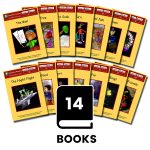
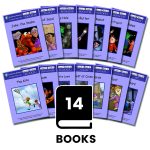
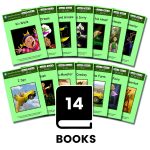
You can find such decodable books in our sets Level 1, ‘The Mail’; Level 2, ‘Viv Wails’; Split Vowel Spellings, ‘Late’ and Level 3, ‘Jake, the Snake.’ The activity books that complement these series offer comprehensive activities for reading and spelling practice.
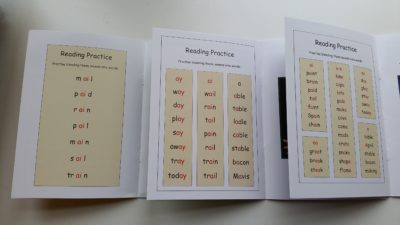
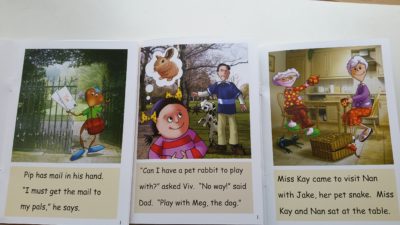
To teach in a cumulative way, use the series above in parallel. Start with Level 1 and read Book 1 with the child (yellow series). Then teach the additional spellings and read Book 1 from Level 2 (green series). Add more spelling alternatives and read Book 1 from Level 3 (purple series). There is also a split vowel spelling series which can be found here.


There is a common belief out there that if we read aloud to children and surround them with engaging books that they will learn to love reading and will therefore reading with only a little phonics help along the way. This belief has been gas-lighting parents for decades are we are tired of it.
This is true and shifts the responsibility of teaching children from school to home. The most important thing a school must do is teach a child to read and yet so many children still leave school not reading.